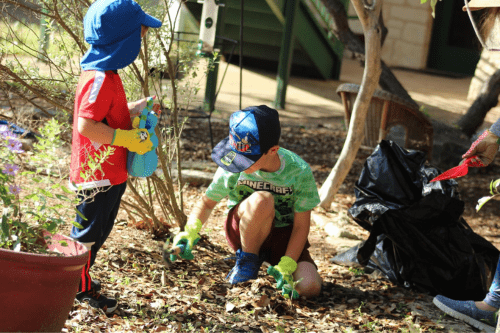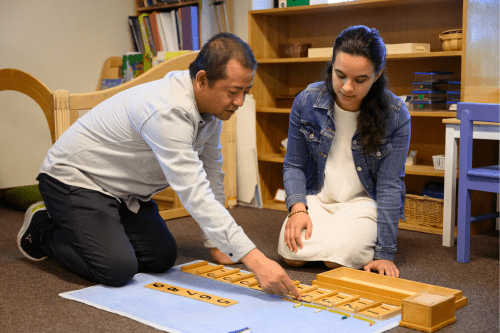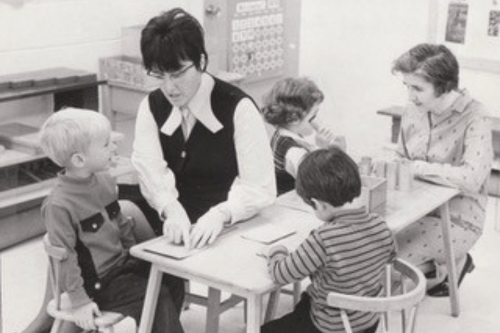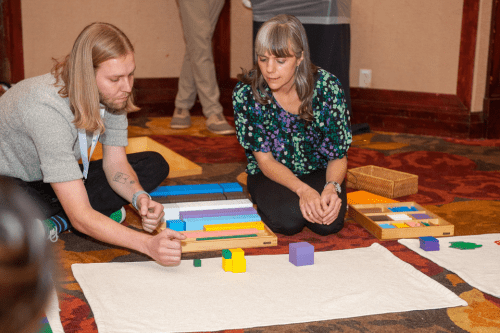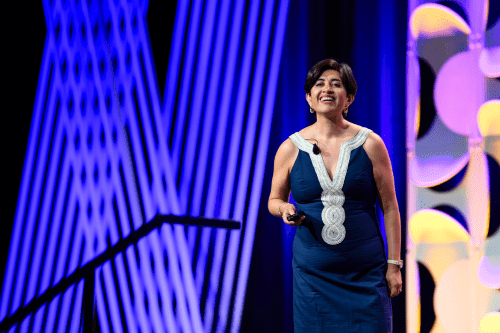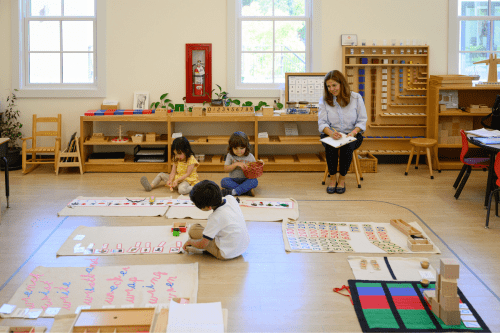5 Tips to Talk to Children about Difficult Topics (When You Least Expect It)

In the middle of making dinner one night, my 7-year-old son says, “Did you know that all the polar bears are dying?” Stopping in my tracks, I took a deep breath. I wondered whether we would end up talking about climate change, ice caps melting, or greenhouse gasses. (Or all of the above?) I took a pause to figure out the best way to respond.
As children grow older, especially 6 and older, they may learn about historical or current events as part of their natural curiosity. However, how do we as parents and caregivers handle questions that come up, especially when we are least expecting them? How do we give them the answers they need to keep coming back to us when more questions arise? Here are 5 tips for if and when you face such a situation:
1. Ask Questions and Ask for Questions
As you think about what to say and how much to say, you may want to start with finding out how much your child knows about the topic and where they have gotten the information. “Where did you hear about that?” or “What would you like to know more about?”
These questions also give you a chance to find out whether there are any misconceptions about the topic, especially if it has been discussed only with friends. But it’s also a great way to find out more while you come up with a game plan for the upcoming discussion.
2. Be Aware of Your own Emotions and Triggers
Many of the tricky topics elicit a variety of emotions or triggers in the adult. Before embarking on a discussion, you should be aware of any anger, fear, or frustration, which may influence how you talk about the topic. Depending on the age of the child and the topic at hand, acknowledging these emotions with them is a great step. “You know, it makes me a bit mad and sad when I think about how much trash is in the ocean!”
Following that up with a way in which you manage these feelings can help your child process their own emotions regarding the topic.
“That’s why we, as a family, buy particular items or packaging to know that we aren’t contributing to the problem.”
3. Don’t be Afraid to Postpone the Conversation
This tip is something I have to remind myself about often. I do get excited to discuss things with my child as he gets older, especially if it is a topic that is close to my heart. However, to be best prepared to talk about something, oftentimes, you can have a mature conversation about how it might be a good idea to talk about it when you’ve had a chance to think about it a bit more.
“This is something that is a really important issue in the world and one where adults often disagree. There are some parts of it that may not be completely appropriate for your age. But I want to talk to you about all the other parts. Can we talk about this tomorrow when I’ve thought about some parts of this a bit more?”
Of course, please make sure that you go back to the topic as soon as it is appropriate and encourage future questions!
4. Be Mindful of Over Explanations
I am guilty of this often, once again, a result of my excitement about certain topics. Oftentimes, children have very specific questions about the topic and may not have the long attention span for the entire history of a particular issue. Asking those questions in the beginning is a good way to figure out exactly what they are looking for. You can answer them and then pause, maybe with a “Do you have any other questions?” This helps the child have the discussion on their terms. Be sure to end the discussion with: “If you have more questions in the future or want to talk about this more, you can always come and ask me.”
5. “I love you and you are safe.”
Even if the topic seems innocuous to adults, children can sense even a small bit of anxiety when tricky issues are discussed or may get a sense of the seriousness through their other sources of information. At the end of all discussions, it is important to reassure your children that they are safe and they are loved by the adults in their life. With my children, they like to list the adults that they can trust in their lives, including teachers, caregivers, and other family. It is also a nice, positive way to end the conversation for the adults.
In the end, I didn’t end up going into detail about anything intense. We discussed a bit about habitats disappearing and how some animals are endangered. Rather than from a “people are the problem,” which was my perspective, he was approaching it from an “animals are so cool and diverse” point of view. Before the discussion could get any further, he had lost interest in talking about it. I kept an ear out to see if it was brought up again and it wasn’t. I know there will be a time in the future where I will get to have amazing discussions on complex topics with him. I just have to remember to follow his lead.
About the Author

|
Neha Vaze, MPH, MAT, is the head of school at the Montessori Children’s School in Hanover, NH. She has formerly been a lead Montessori educator, an assistant, and a middle school science teacher. She is IMC-accredited (Early Childhood). Contact her at neha.kuber@gmail.com. |
Interested in writing a guest post for our blog? Let us know!
The opinions expressed in Montessori Life are those of the authors and do not necessarily represent the position of AMS.







